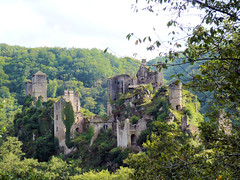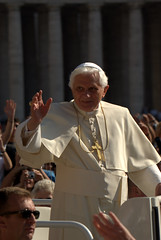This is just a review of our English Medieval Period wksht... I suggest that you view the definition and write in the term cause it's hard to guess te exact definition I'll use.
| 31336885 | Battle of Hastings | the decisive battle in which William the Conqueror (Duke of Normandy) defeated the Saxons under Harold II and thus left England open for the Norman Conquest |  | 0 |
| 31336886 | William the Conquerer | Duke of Normandy;he defeated Harold, the Anglo-Saxon king, to become the first Norman king of England |  | 1 |
| 98497351 | William of Normandy | "The Conqueror" who defeated Harold at Hastings and established feudalism in England | 2 | |
| 31336917 | Feudalism | The society that centered around castle life with the hierarchy of kings, barons, knights, franklins, and serfs; the Medieval Period is characterized by this |  | 3 |
| 31336919 | Sir Gawain and the Green Knight | One of such stories written about the courtly life of King Arthur's court, written in the alliterative style of Anglo-Saxon England |  | 4 |
| 31337241 | Sir Thomas Malory | Compiled many of the stories into his seminal work Morte d' Arthur | 5 | |
| 31337247 | Geoffrey Chaucer | wrote Canterbury Tales | 6 | |
| 31337328 | Canterbury Tales | A frame story in which pilgrims on a trip to a Canterbury Cathedral have a story telling contest; every segment of Medieval society is represented in the characters of this story | 7 | |
| 31337329 | 1375 | the year that Canterbury Tales was first published (around) | 8 | |
| 31337331 | 1066-1485 | The time span of the Medieval Period | 9 | |
| 31337334 | Christian Church | very powerful under the Pope of Rome during these years; monasteries and priories were everywhere |  | 10 |
| 31337341 | Hierarchy | Pope, archbishops, bishops, priests, monks, and nuns mirrored the __ of society. |  | 11 |
| 31337346 | Black Plague | killed a third of the population in Europe |  | 12 |
| 31337347 | 1066 | year in which William the Conquerer won the Battle of Hastings | 13 | |
| 31337348 | Morality Plays | featured abstract ideas such as Good Deeds, Mercy, and Death as characters; particularly popular in the15th century; Ex: Everyman; forerunners to John Bunyan's great allegorical work The Pilgrim's Progress (17th century) |  | 14 |
| 182074666 | Act of Homage | ceremony in which a vassal promises loyalty to a lord | 15 | |
| 280182172 | Roger Bacon | English scientist and Franciscan monk who stressed the importance of experimentation known as "father of English philosphy" | 16 | |
| 277571353 | Ballads | Are songlike poems that tell stories. They often deal with adventure and romance. | 17 | |
| 242329103 | Baron | A title given out to a ruler's powerful supporter | 18 | |
| 349327903 | St. Thomas á Becket | Friend of Henry 2 who was appointed archbishop of Canterbury but defied the king and appealed to the pope | 19 | |
| 557241318 | Archbishop of Canterbury | Saint Thomas Becket | 20 | |
| 543672314 | Cathedrals | Christian churches which contains the seat of a bishop, thus serving as the central church of a diocese also a social cornerstone in the middle ages | 21 | |
| 1007001902 | William Caxton | London merchant; Brought printing press to England; enabled all people to have access to books | 22 | |
| 704031380 | Chivalry | Code of conduct for knights during the Middle Ages that stressed truth honor and courtesy | 23 | |
| 803749601 | Common Law | Judge-made law that originated in England from decisions shaped according to prevailing custom. Decisions were applied to similar situations and gradually became common to the nation. | 24 | |
| 882308078 | Crusades | A series of holy wars from 1096-1270 AD undertaken by European Christians to free the Holy Land from Muslim rule. | 25 | |
| 819385543 | Domesday Book | A record of all the property and holdings in England commissioned by William the Conqueror in 1066 so he could determine the extent of his lands and wealth | 26 | |
| 236158368 | "Everyman" | Most famous morality play - important piece in Middle English literature | 27 | |
| 111435305 | Gothic | A style of architecture developed in northern France that spread throughout Europe between the 12th and 16th centuries | 28 | |
| 769957108 | Guilds | Association of merchants or artisans who cooperated to protect their economic interests | 29 | |
| 732588544 | Henry 7 | (1485-1509) The first Tudor king of England, he worked to end the struggle for power between the Yorks and Lancasters by marrying Elizabeth of York, effectively merging the two sides into Tudors. Helps to affirm his position on the throne with marriage of son Arthur to Ferdinand and Isabella's Catherine of Aragon, later securing a hereditary monarchy for his son Henry. | 30 | |
| 47719277 | House of Lancaster | the English royal house that reigned from 1399 to 1461 --- red rose | 31 | |
| 301410837 | House of York | the English royal house (a branch of the Plantagenet line) that reigned from 1461 to 1485 --- white rose | 32 | |
| 144183840 | Hundred Years War | Series of campaigns over control of the throne of France, involving English and French royal families and French noble families. (p. 413) | 33 | |
| 128845491 | King John | King of England who raised taxes and punished his enemies without a trial. He is best known for being forced to sign the Magna Carta. | 34 | |
| 591612588 | Le Morte d'Arthur | "Death of Arthur" 15th century prose work by Sir Thomas Malroy | 35 | |
| 986255488 | Magna Carta | (1215) a charter of liberties (freedoms) that King John of Englad was forced to sign; made it so king could not tax without meeting with barons | 36 | |
| 242865659 | Medieval Church | The Catholic Church was the most powerful institution in medieval times. It promoted a society that shared a common culture and religious beliefs. | 37 | |
| 113821758 | Normans | "Northmen"; the Vikings who settled in the northern part of France (Normandy). --- 1066 | 38 | |
| 932716677 | Parliament | A body of representatives that makes laws for a nation | 39 | |
| 313966011 | Piers Plowman | an allegoric work by William Langland | 40 | |
| 437167670 | Plantagenets | 300-year line of English kings descended from Geoffrey Plantagenet (named for the plant sprig he wore in his hat) | 41 | |
| 273104380 | Primogeniture | A system of inheritance in which the eldest son in a family received all of his father's land. The nobility remained powerful and owned land, while the 2nd and 3rd sons were forced to seek fortune elsewhere. Many of them turned to the New World for their financial purposes and individual wealth. | 42 | |
| 872182231 | Richard 1 | king of England during the 3rd crusade(lionhardt) He was captured in Austria - (Before King John) militaristic King | 43 | |
| 933190815 | Romances | adventure stories that feature kings, knights, and damsels in distress and tell of quests, battles, and doomed love | 44 | |
| 520718553 | Serfs | A person who lived on and farmed a lords land in feudal times | 45 | |
| 691415067 | War of the Roses | struggle for the English throne (1455-1485) between the house of York (white rose) and the house of Lancaster (red rose) ending with the accession of the Tudor monarch Henry VII | 46 | |
| 2284485178 | Medieval Period Traits | Value of Courtly Love Code of Chivalry Quest Supernatural Christianity Allegiance to King | 47 | |
| 2284511780 | Arthurian Legend | Adventure in which a knight breaks the code of Chivalry but learns something | 48 | |
| 2284591856 | Essay Question | Much of the story is about the timeless nature of mankind Vernacular-written language Shows traits of society many character are reminiscent of spirt and traits that are still part of socity today like greed, corruption and social classes Characters: Doctor-plastic surgeon Friar-politician Knight-factory worker Pardoner-salesman Similar morals as today Pardoners tale | 49 | |
| 2284619863 | Bob and Wheel | a short line of one, two or three syllables followed by four rhymed lines | 50 |

